Someone who lives in your home–a spouse, partner, parent, child, or friend–has been away for 30+ days in a residential addiction treatment program. You’ve had a 30-day break from worrying about their use of drugs or alcohol and whether they’ll do irreversible damage to themselves. Maybe there were some downsides to having them gone: less income, or less help with childcare, pet, and household responsibilities. Maybe you simply missed them.
But now their time in treatment is ending, and they’re coming home. Maybe you feel excitement, anxiety, or lingering resentment. Maybe you have a list of chores you need their help with. Maybe you’re just ready for life to get back to “normal.” All of these reactions are perfectly understandable. At the same time, it’s important to understand that your loved one is coming home changed. The person they are now–a sober person hoping to sustain long-term recovery–will have different needs and capabilities than the person they used to be. How can you best support them in their recovery while also honoring your own needs?
We have five suggestions.
- Make Your Home a Safe Place
A person in early recovery is just starting to learn about what triggers them to drink or use drugs. They still experience cravings for substances, often when they least expect to. What they need most is a safe place to live, a haven from the temptations and triggers they will surely face outside the home. To make your home a recovery haven, do the following:
- Don’t keep substances in the home. Any current prescription medications should be kept in a secure place accessible only to the person who needs them.
- Don’t use substances in the home. If people in the household drink, stop drinking at home, and don’t come home under the influence. This holds true even if your loved one’s substance of choice was not alcohol. When someone is in recovery, they need to abstain from all addictive substances. A drink of alcohol can trigger cocaine use, and vice versa.
- If conflict or tension is a regular part of the home environment, address it. Addiction is a family disease. Everyone in the household will benefit from family therapy to learn how to set boundaries, communicate effectively, and support each other.
- Manage Your Expectations
It’s easy for the people who remain at home to think that once their loved one completes treatment, life will be better. You might expect that your loved one will suddenly be more responsible and able to take on all of the duties you’ve had to do for them when they were in active addiction. You might expect your loved one to spend more time with you and the rest of the family to make up for all of the lost times.
It’s quite possible that, over time, your loved one will change and grow in ways that make them a much better partner, parent, son, or daughter. However, expecting these changes to happen all at once will probably lead to disappointment.
For example, your loved one may want to look for a different job, one that is less stressful but also less lucrative. Your expectation of returning to a healthy income may have to change. Or, your loved one may start to spend more time away from home, going to recovery meetings, therapy appointments, and activities with sober friends. Your expectation of them being more available now may not be met.
- Express Your Needs
While it’s important to give your loved one some space to make the changes they need to make, this doesn’t mean you have to grit your teeth and suffer when your needs aren’t being met.
Just as your loved one has to learn how to live and relate to people differently, you, too, have to learn how to communicate what you need. If you need more time with your loved one, ask for it. If you need more help around the house, ask for it. If you’re worried about your finances, ask for help brainstorming solutions.
Asking, of course, does not mean that the person is obligated to give you what you ask for, but at least they’ll be more aware of how their actions affect you and what would help. When each person in the household expresses their needs, it creates an opportunity to grow closer and to heal past wounds. If your expression of your needs is always met with resistance or unwillingness, it might be time to consider whether the relationship serves you.
- Don’t Manage Their Recovery
As the person who doesn’t struggle with addiction, it might be tempting to believe that you know what your loved one needs better than they do. It can also be tempting to try to “force” them to be strong in their recovery because you don’t want to go through the upheaval of a relapse. But there’s a difference between supporting your loved one’s recovery and trying to control it. Here are some examples:
Do:
Ask how they’re doing
Go to Al-anon meetings
Go to an AA meeting if they invite you
Participate in couples or family therapy if they ask you to
Express your concerns
Congratulate them for their accomplishments and their hard work
Don’t:
Take responsibility for keeping track of their appointments or meetings
Do their household chores for them
Monitor where they are and what they’re doing at all times
Do extra work to protect them from life’s demands
Bottom line: if your loved one wants to start using substances again, there’s nothing you can do to stop them. Provide a safe home, offer encouragement, and provide help when they ask for it, but remember that their recovery is not your responsibility. Your responsibility is to your own well-being. Which brings us to number 5…
- Get Professional and Peer Support
Perhaps most importantly, take care of yourself. It’s hard to live with someone who struggles with addiction, and recovery brings different challenges. Often, those who are in a close relationship with someone with a substance use disorder struggle with codependent tendencies. It can feel easier to focus on “fixing” or caring for someone else than focusing on your own growth and happiness. If possible, work with a therapist to learn about the ways you’ve become part of the addiction dynamic and how to break that pattern. Strongly consider going to Al-Anon meetings or finding another type of peer support that allows you to engage with others who are in similar situations.
Let Northern Path Recovery Center Help
If you or your loved one is struggling with addiction or having a difficult time in recovery, reach out for help. Long-term recovery is possible, and our team in Fort Wayne, Indiana, is equipped with the compassion and expertise to help you get back on track and thrive. We would love to hear from you.








